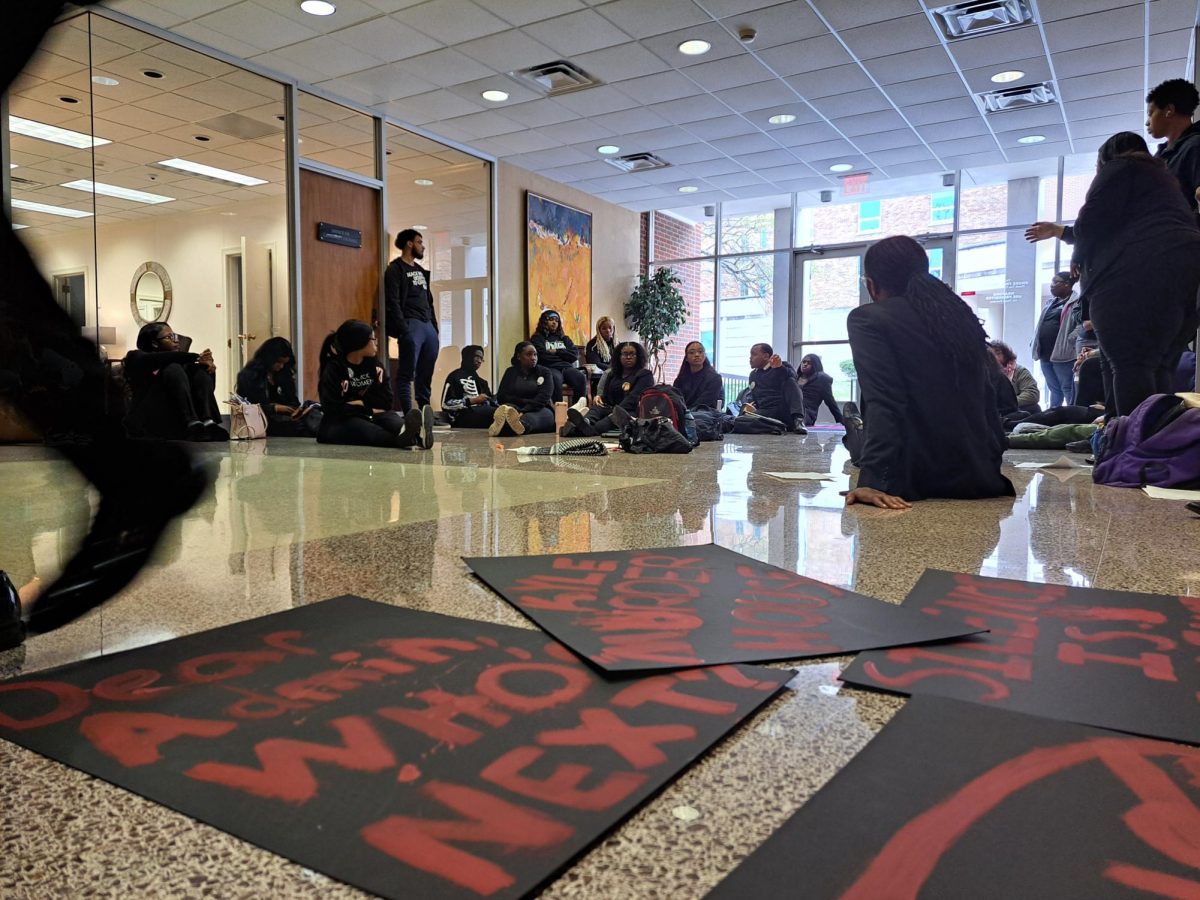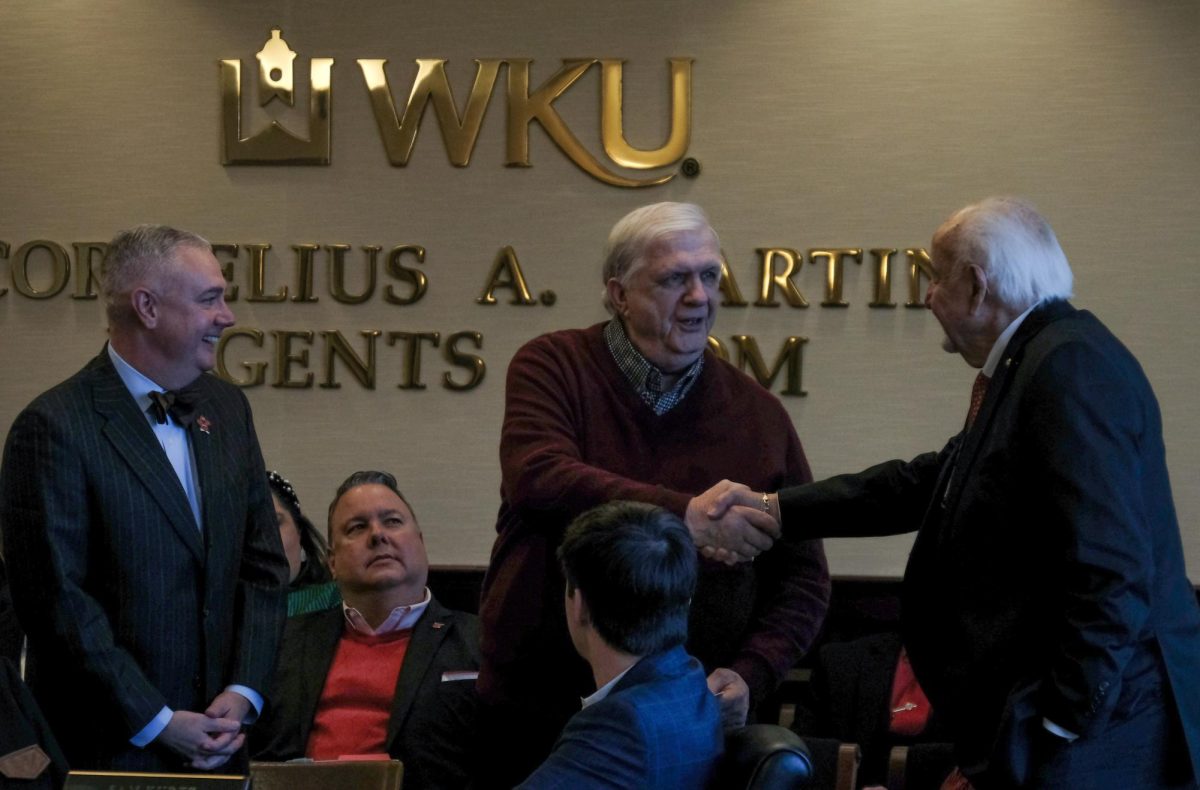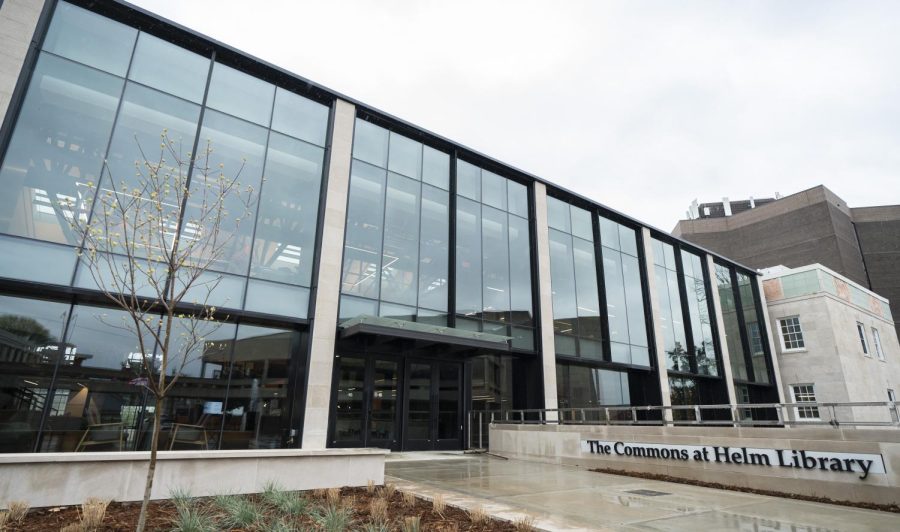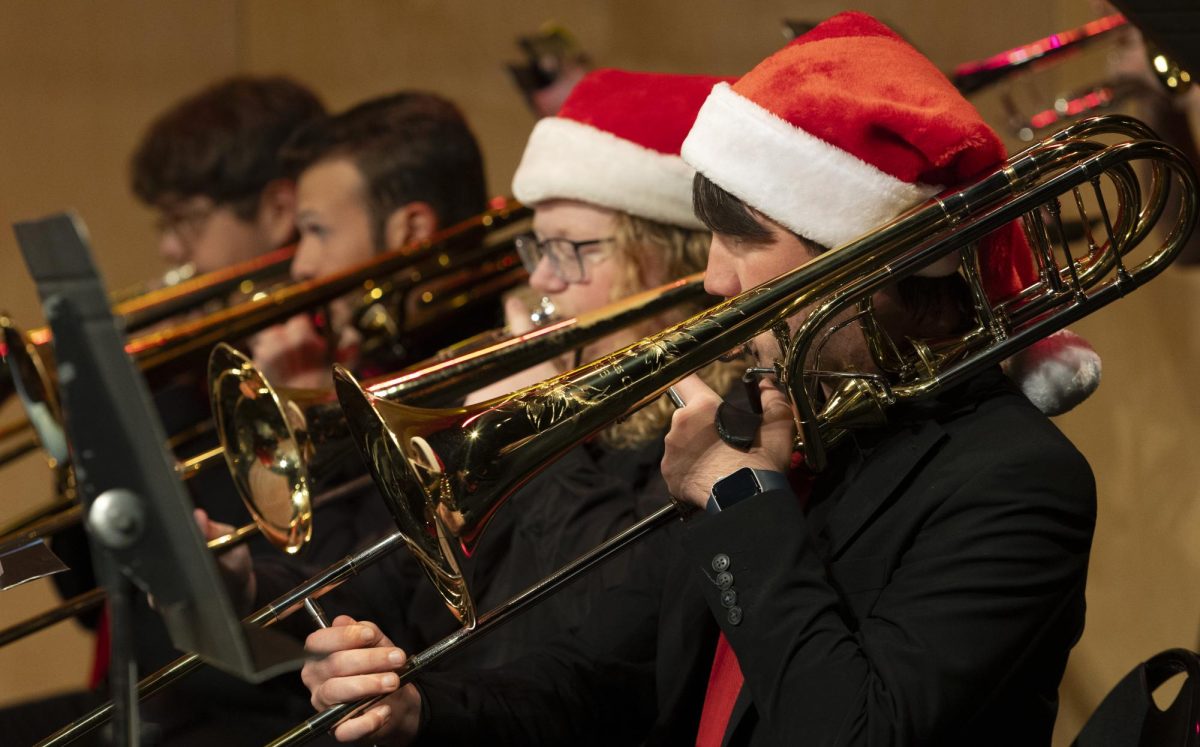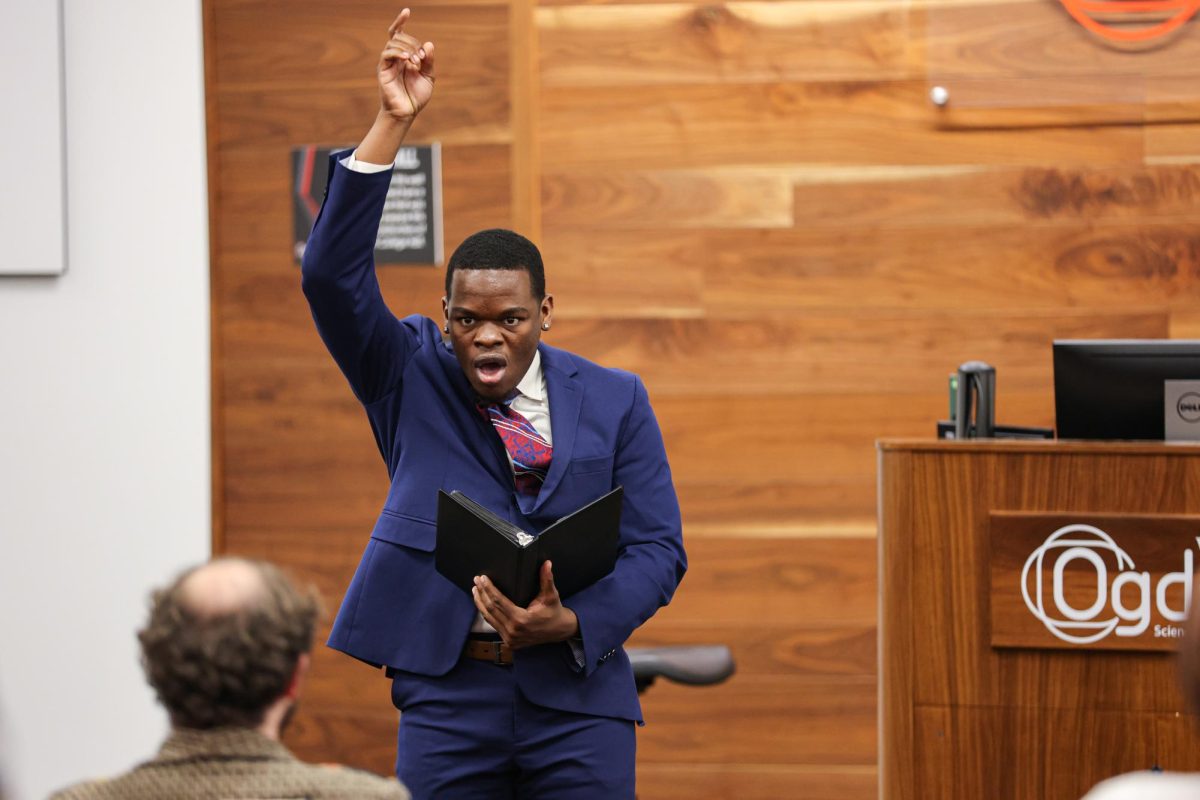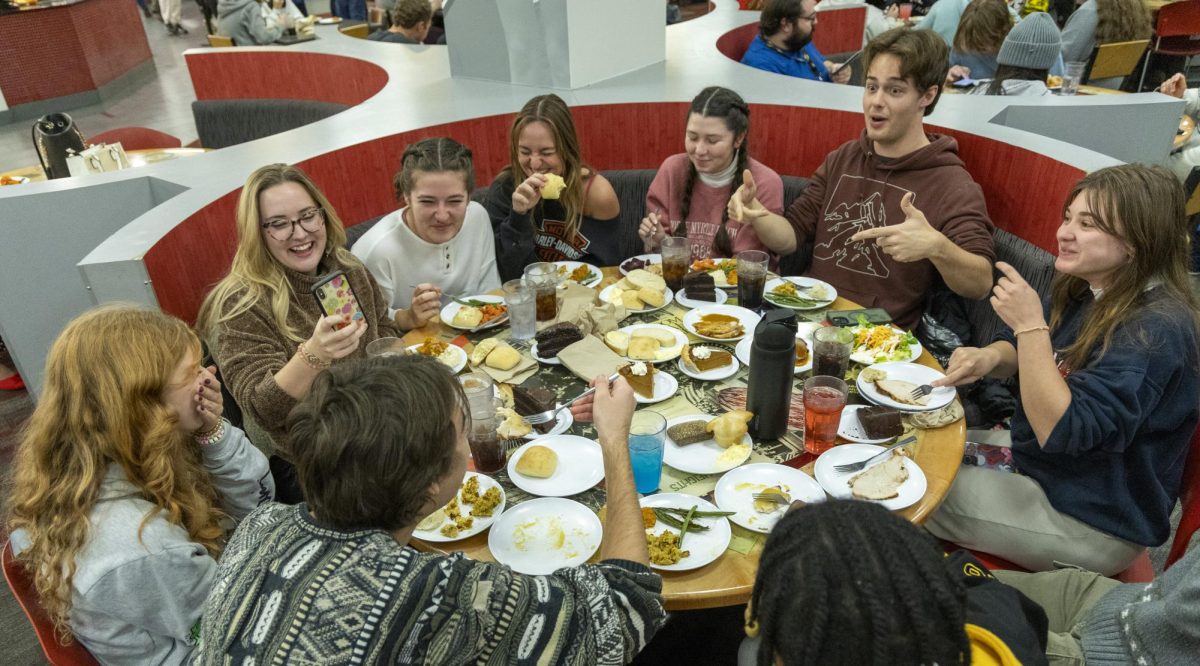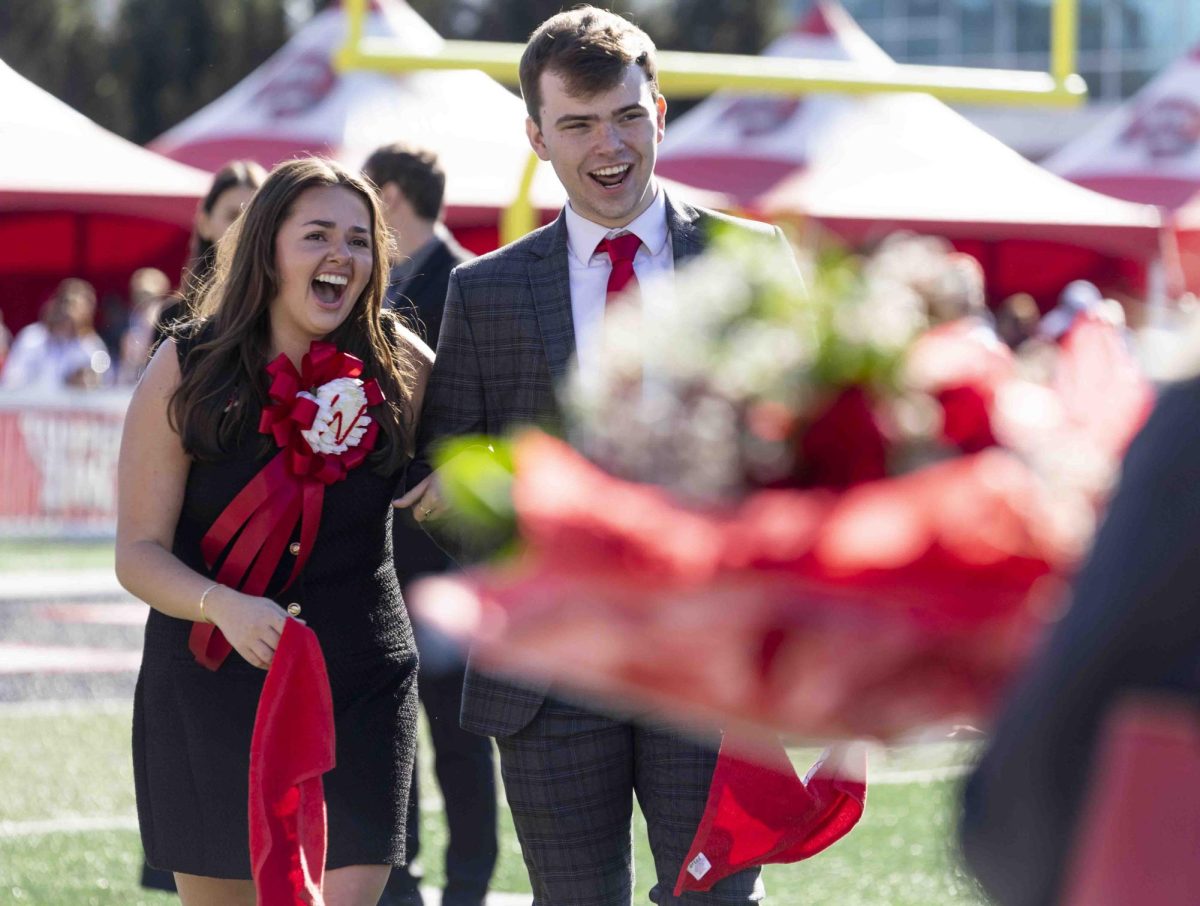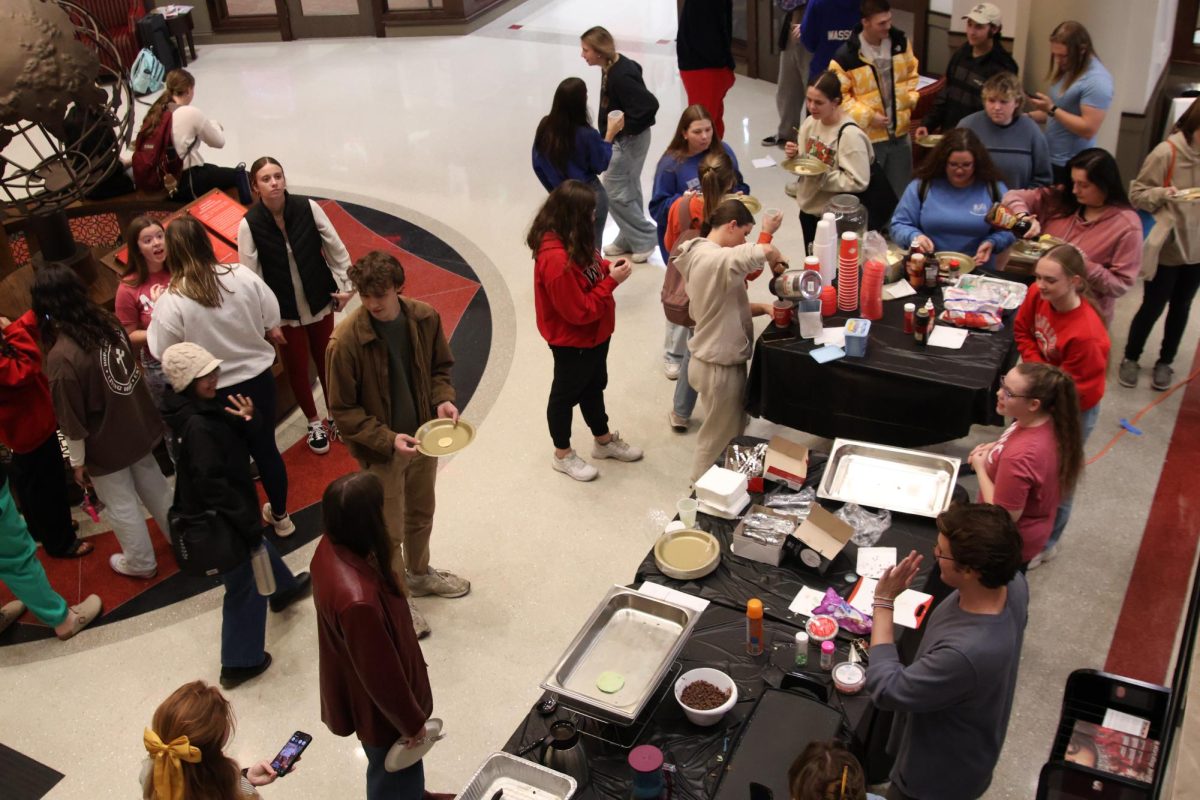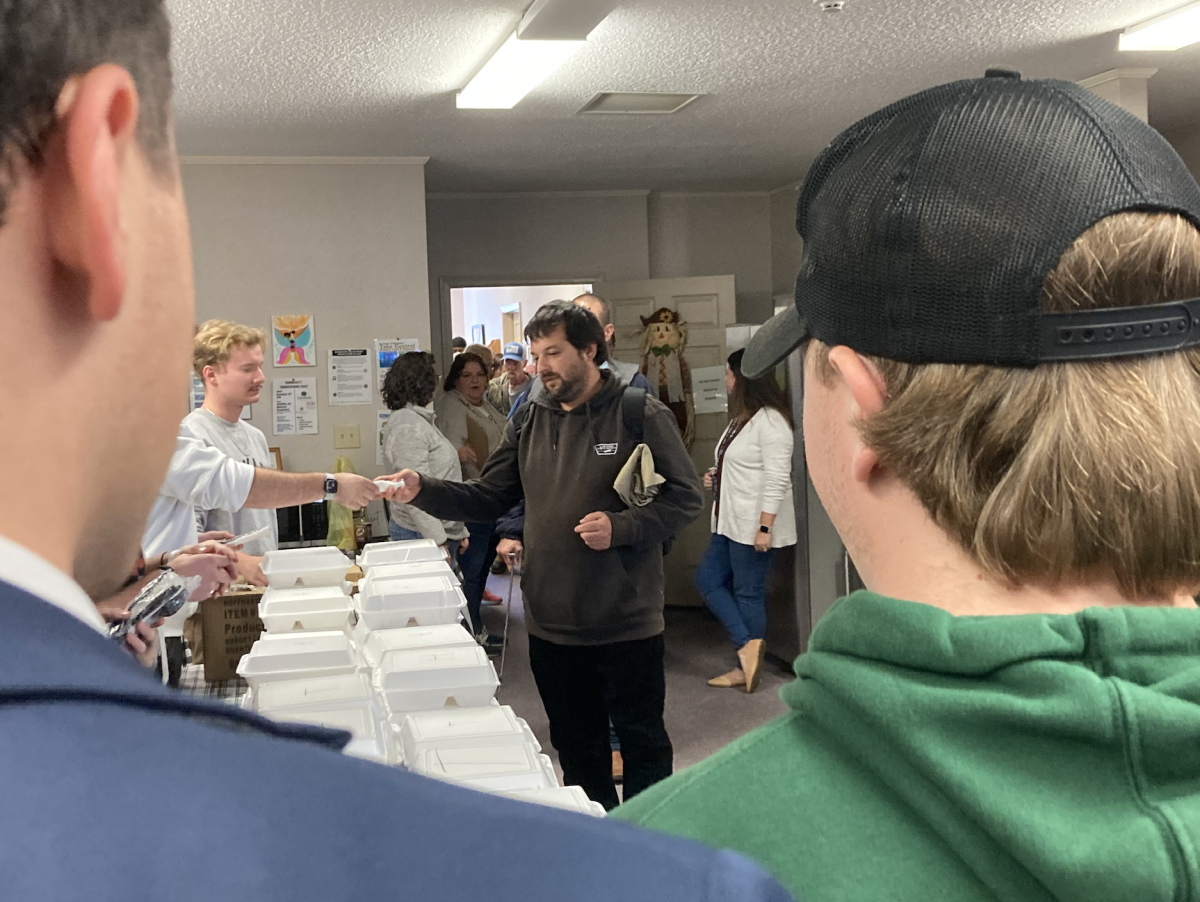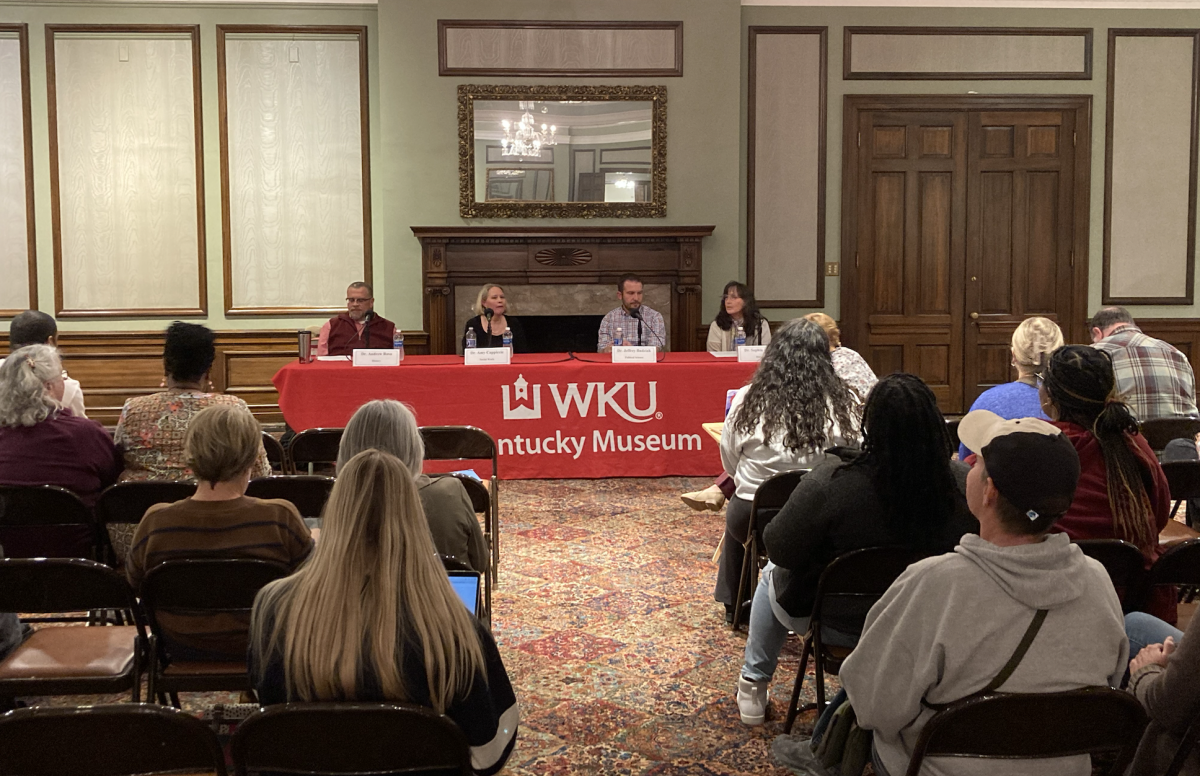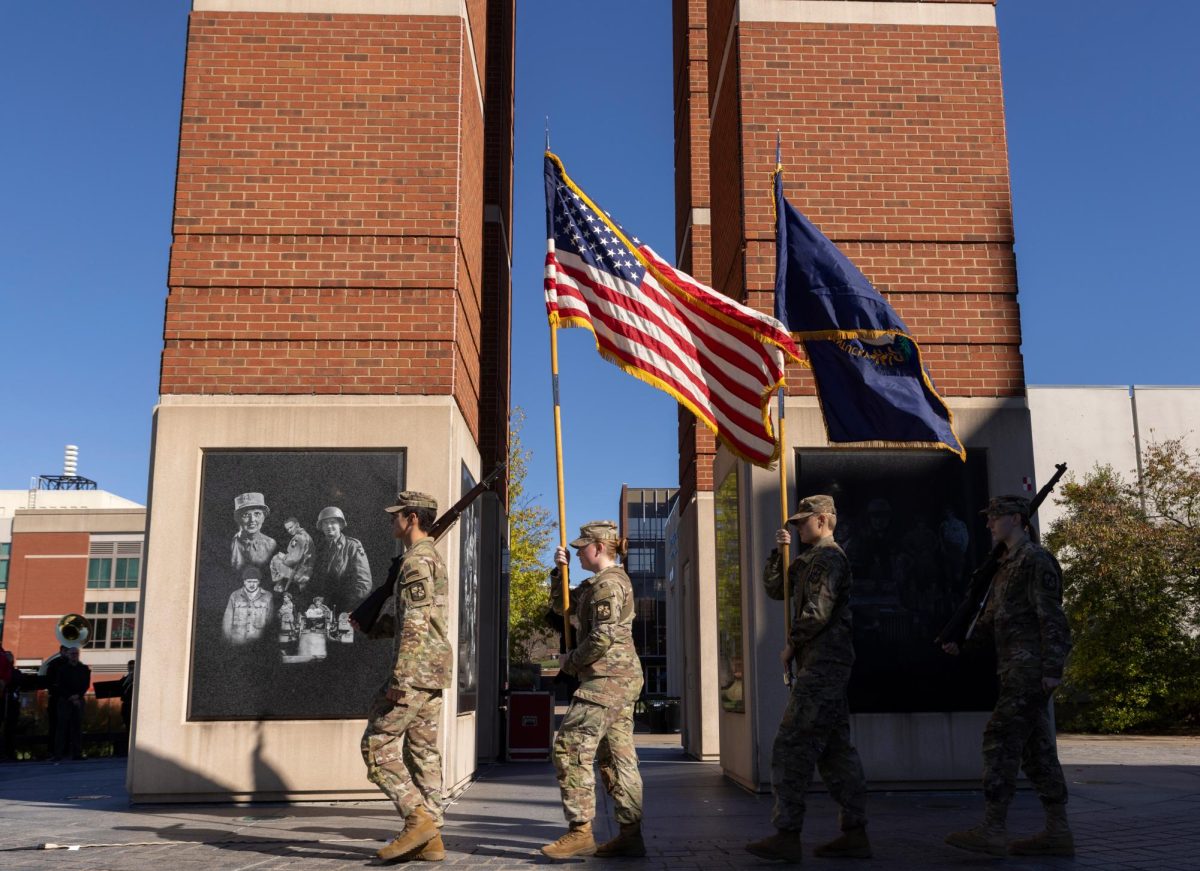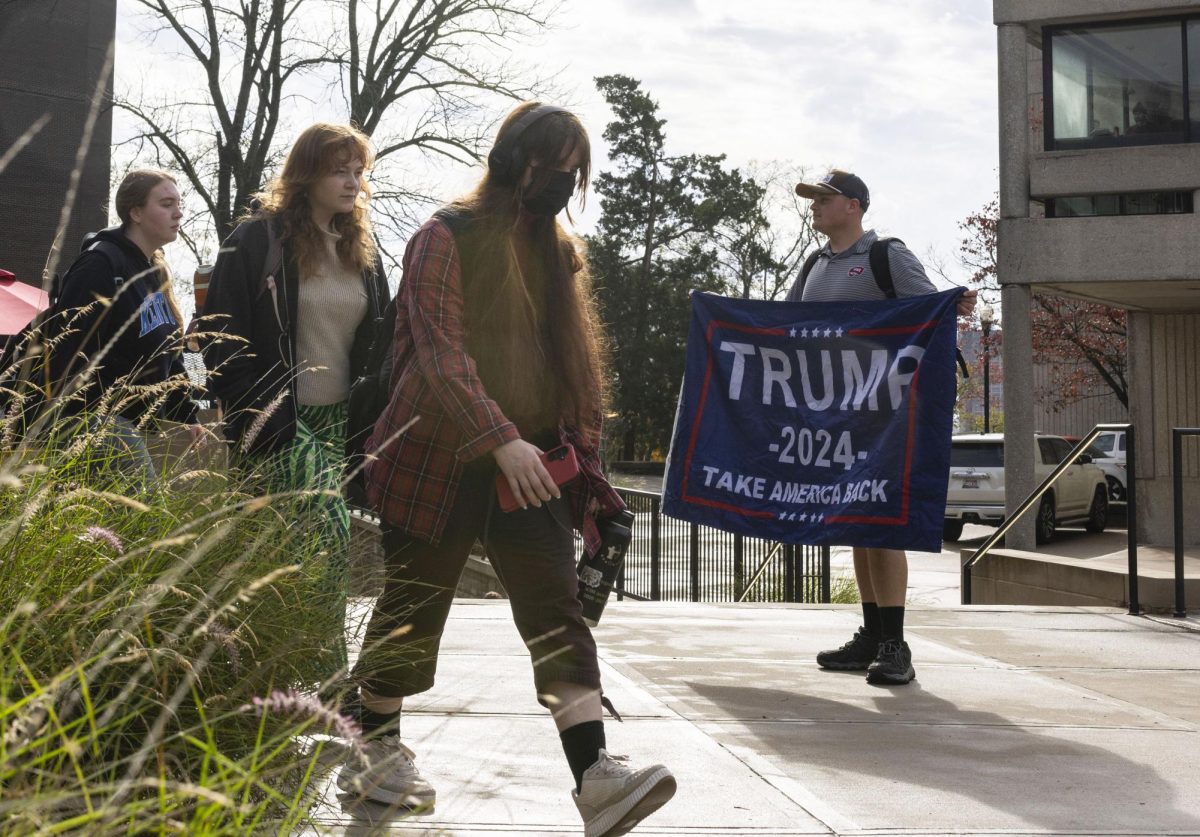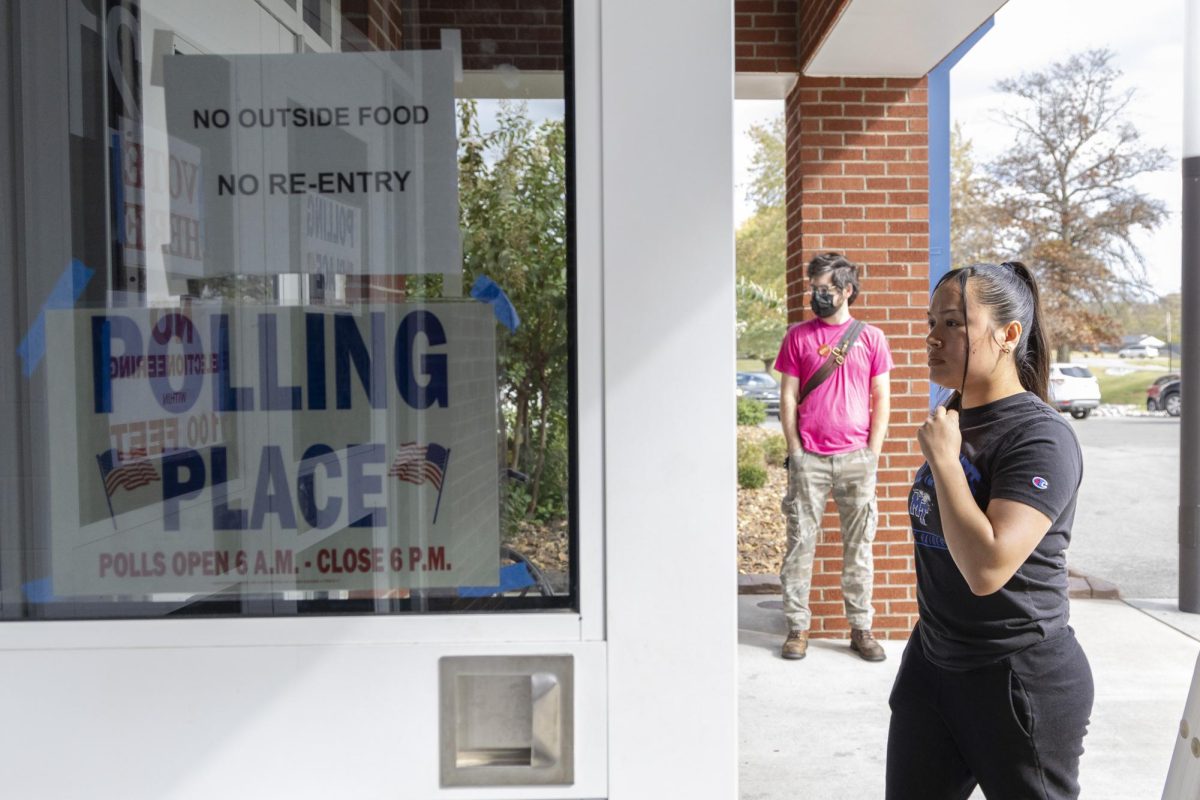“For the People,” an advocacy group made of WKU students, staged a sit-in at the Wetherby Administration Building today in response to Kyle Rittenhouse speaking on campus for a WKU Turning Point USA event.
Students arrived at 8 a.m. and took turns sharing their feelings about the “lack of response” from the university about Rittenhouse speaking.
“Silence is complicity,” Arianna Pierson, a junior sociology and criminology major with a concentration in pre-law said. “So far the WKU administration has been very strategic in their planning to try to shut down the voices of their students. We’re always at the bottom of the Hill, we’re always busy in class, we always stay in the Intercultural Student Engagement Center. We’re never out in their face.”
Students at the sit-in critiqued the university’s language of neutrality in their student-all emails sent in recent weeks and the lack of response from the Student Government Association.
“Today, we were met with discomfort the moment we stepped on the ground to this building,” Pierson said. “We were met by the police. We were met with administrators taking pictures of us. If you were sitting in a WAB office and you were uncomfortable, imagine how we feel now that Kyle Rittenhouse is coming here.”
Several administrators have sent emails to WKU students, faculty and staff in response to the concerns about the event.
On Monday, March 25, WKU President Timothy Caboni sent an email to students that referenced the Campus Free Speech Protection Act and WKU’s environment for the “free exchange of ideas.”
“As guardians of free speech, universities have an obligation to establish an environment where a wide range of perspectives are exchanged, even if the ideas presented are different from our own, offensive or even contemptible,” Caboni stated in the email.
WKU Provost Bud Fischer stated in an email sent to faculty and staff the next day that WKU is committed to providing a campus experience that is inclusive.
“Universities should serve as bastions of intellectual inquiry, where scholars and students alike are free to explore a wide range of perspectives without fear of censorship or reprisal,” Fischer stated. “On one hand, allowing provocative speakers to share their message on a campus is perhaps the purest demonstration of a commitment to free speech in which a university can engage. On the other hand, many members of a campus community may find the viewpoints expressed at such events reprehensible.”
Nakhyia Staten, freshman communication disorders major with a focus on speech pathology, shared her emotions while participating in the sit-in.
“As a Black student, this is something that I take personally and it’s very unsettling that the people around us would have the idea of bringing a white supremacist and murderer on campus to speak about his experiences,” Staten said. “We’re trying to figure out his experiences on what? How come students want to hear how Kyle Rittenhouse feels and hear his voice but not us?”
Saundra Ardrey, an associate professor of political science at WKU, shared similar past experiences during her time teaching at WKU. Ardrey has been teaching at WKU for over 30 years.
“During my first semester here, I was protesting the Ku Klux Klan,” said Ardrey. “Now here I am at the end of my [last] semester doing the same thing. It’s disheartening that this university has moved forward. Unfortunately, the more things change the more they stay the same. Where good people don’t demand change, bad things happen.”
The advocacy group plans to continue the protest by marching through campus at the WKU PCAL “We Stand With You” social event and at the TPUSA event.
News reporter David Campos-Contreras can be reached at [email protected].

